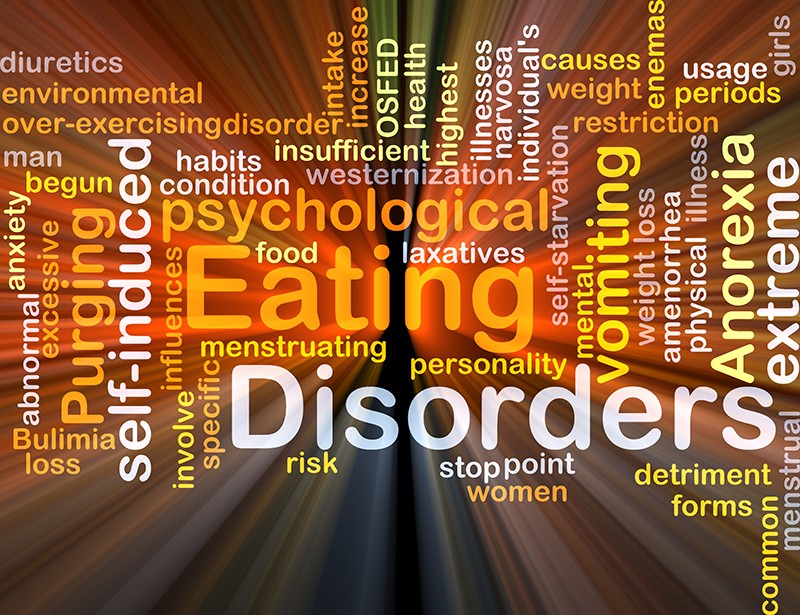You may be diagnosed with an eating disorder if your eating habits threaten your health and happiness or threaten the health and happiness of the people who care for you.
It can often be very difficult to realise that a loved one or friend has developed an eating disorder.
Warning signs to look out for include:
- Missing meals.
- Complaining of being fat, even though they have a normal weight or are underweight
- Repeatedly weighing themselves
- Making repeated claims that they have already eaten, or they will shortly be going out to eat somewhere else
- Cooking big or complicated meals for other people, but eating little or none of the food themselves
- Only eating certain low-calorie foods in others’ presence, such as lettuce or celery
- Feeling uncomfortable or refusing to eat in public places, such as a restaurants
- Changes in personality
- Withdrawing from social groups, hobbies they use to enjoy or from family life
- Depression and anxiety, particularly around mealtimes.
- Deliberately making yourself sick or taking laxatives after you eat
- Exercising too much
- Having very strict habits or routines around food
- Changes in your mood
You may also notice physical signs, including:
- Feeling cold, tired or dizzy
- Problems with your digestion
- Your weight being very high or very low for someone of your age and height
- Not getting your period for women and girls
*eating disorders are 7 to 10 times more common in women than in men*
Types of eating disorders
The most common eating disorders are:
Anorexia Nervosa – when you try to keep your weight as low as possible by not eating enough food, exercising too much, or both
Bulimia – when you sometimes lose control and eat a lot of food in a very short amount of time (binging) and are then deliberately sick, use laxatives , restrict what you eat, or do too much exercise to try to stop yourself gaining weight
Binge Eating Disorder (BED) – when you regularly lose control of your eating, eat large portions of food all at once until you feel uncomfortably full, and are then often upset or guilty
Other Specified Feeding or Eating Disorder (OSFED) – when your symptoms don’t exactly match those of anorexia, bulimia or binge eating disorder, but it doesn’t mean it’s a less serious illness
OSFED is the most common, then binge eating disorder and bulimia. Anorexia is the least common.



